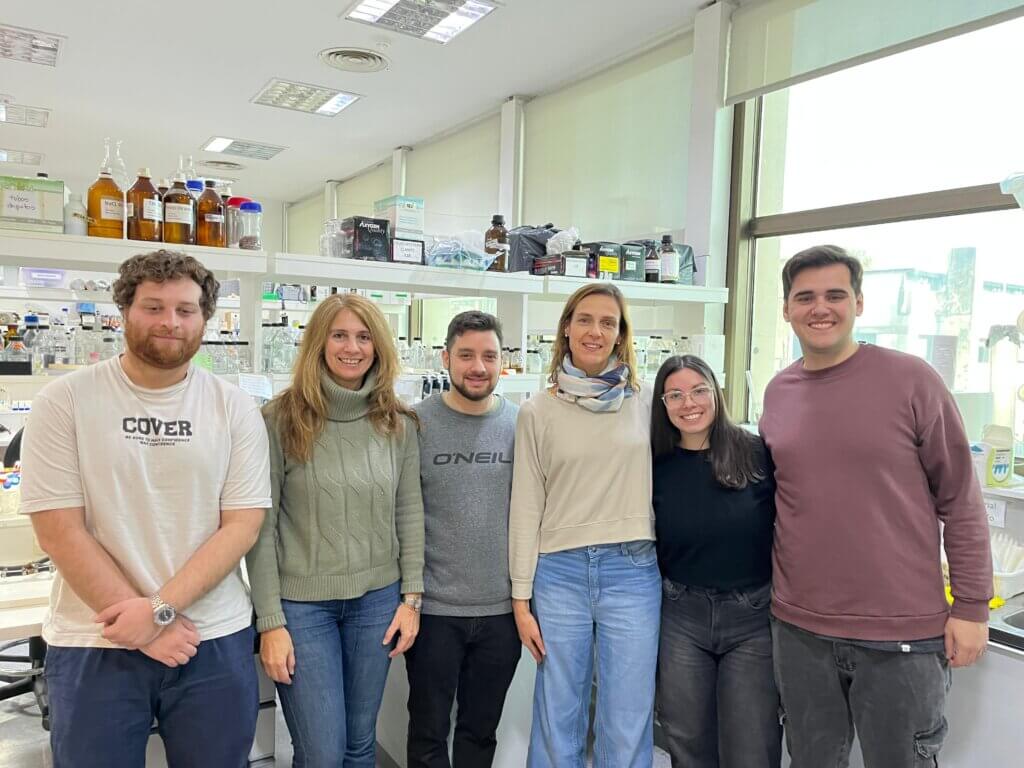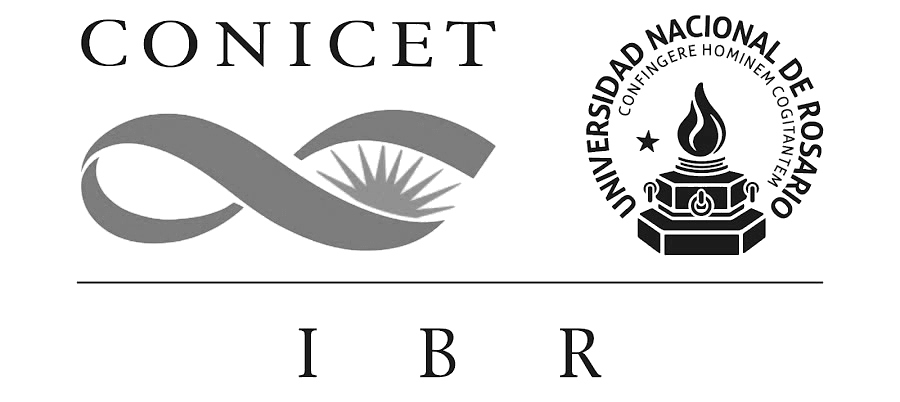research groups
Microorganisms of Agronomical and Environmental Interest
summary

- Ottado, Jorgelina Location: CCT
Email: ottado@ibr-conicet.gov.ar
- Garavaglia, Betiana Location: CCT
Email: garavaglia@ibr-conicet.gov.ar
- Lopez, Marcos
- Martinez, Camila
RESEARCH LINES
Bioremediation of glyphosate herbicide
The practice of direct sowing implies an increase in the use of agrochemicals; among them, the broad-spectrum foliar herbicide, glyphosate. This herbicide acts on the shikimate pathway of plants through the inhibition of the enzyme 5- enolpyruvylshikimate 3-phosphate synthetase (EPSPS), involved in the metabolism of aromatic amino acids. Glyphosate has become the most widely used herbicide in the world due to the introduction of GM crops resistant to it. The World Health Organization has classified it within group 2A, which includes possible carcinogens for humans. The excessive and inappropriate use of glyphosate is associated with its widespread presence in aquatic and terrestrial environments. Therefore, it is essential to have systematic controls of concentrations of the herbicide and its degradation compounds. For this, the development of tools that allow the detection and detoxification of the glyphosate molecule is proposed. In our group, bacteria obtained from environments contaminated with glyphosate have been isolated, identified and sequenced, including the strain Agrobacterium tumefaciens CHLDO, which has proven to be efficient to degrade glyphosate added to the culture medium. The general objective of this project is to characterize this degradation pathway, including its regulation, and to design biotechnological tools that enable the detection and removal of glyphosate from the environment.
Images of our research lines
PUBLICATIONS AND PATENTS
Bacterial isolates from Argentine Pampas and their ability to degrade glyphosate.
Bacterial isolates from Argentine Pampas and their ability to degrade glyphosate.
A novel Xanthomonas citri subsp. citri NADPH quinone reductase involved in salt stress response and virulence.
A novel Xanthomonas citri subsp. citri NADPH quinone reductase involved in salt stress response and virulence.
Participation of two general stress response proteins from Xanthomonas citri subsp. citri in environmental stress adaptation and virulence.
Participation of two general stress response proteins from Xanthomonas citri subsp. citri in environmental stress adaptation and virulence.
Optimization of bacterial bioaugmentation for groundwater Mn removal using a waste-based culture medium and lyophilization.
Optimization of bacterial bioaugmentation for groundwater Mn removal using a waste-based culture medium and lyophilization.
Environmental bacteria involved in manganese(II) oxidation and removal from groundwater.
Environmental bacteria involved in manganese(II) oxidation and removal from groundwater.
Sede CCT Rosario
Ocampo y Esmeralda, Predio CONICET-Rosario
2000 Rosario, Santa Fe, Argentina
Tel. 54-341-4237070 / 4237500 / 4237200
Sede Facultad de Ciencias Bioquímicas y Farmacéuticas
Universidad Nacional de Rosario - Suipacha 531
2000 Rosario, Santa Fe, Argentina
Tel. +54 341 4350596 / 4350661 / 4351235
🔬 El IBR suma 9 proyectos seleccionados en Investigación Orientada 2025 de @ProduccionSF y @CienciaSantaFe.
Biotecnología, salud y sostenibilidad para fortalecer el vínculo entre ciencia, innovación y desarrollo territorial.

